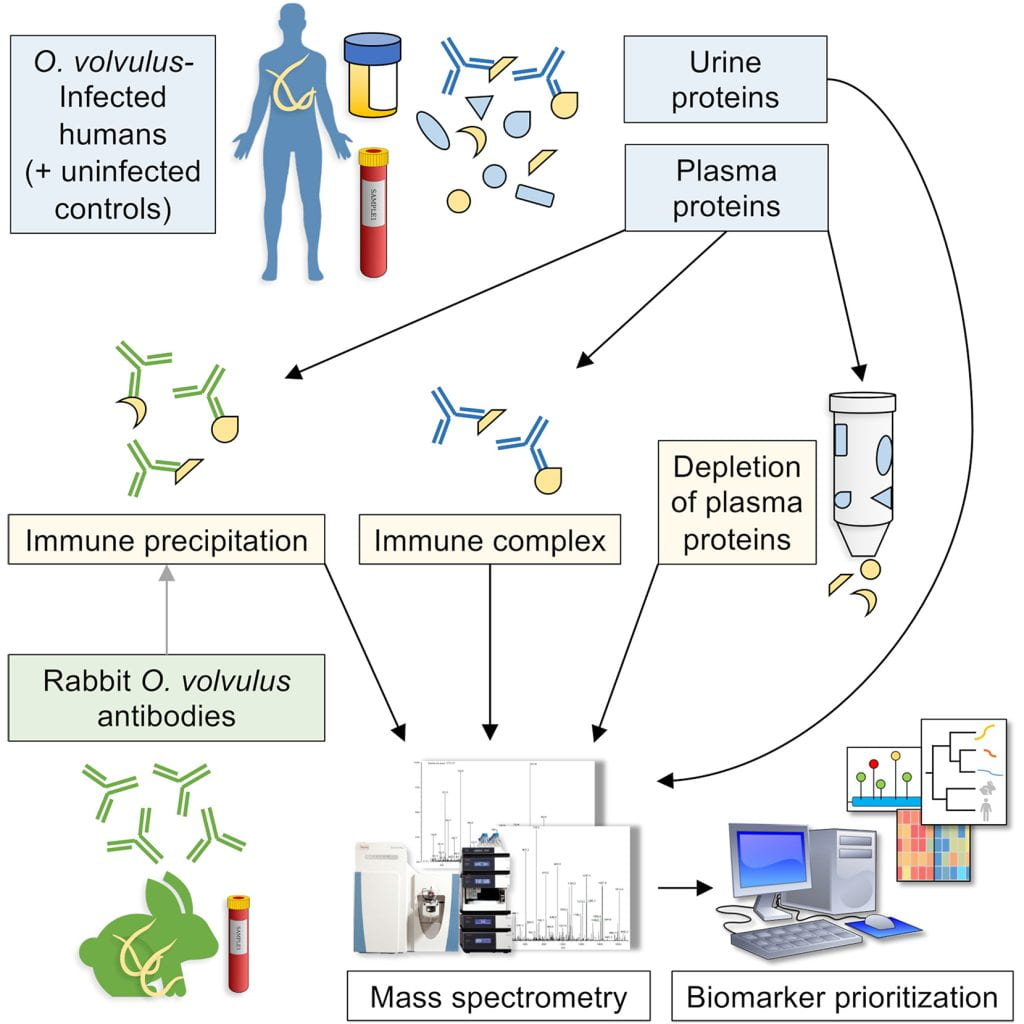In January, Qiang Zhang, PhD and collaborators had their research titled “Direct Proteomic Detection and Prioritization of 19 Onchocerciasis Biomarker Candidates in Humans,” published in “Molecular and Cellular Proteomics.”
Onchocerca volculus is the causative agent of onchocerciasis. Which affects over 20 million people, causing severe dermatitis and ocular conditions, including blindness. As current treatments do not kill adult female worms and common diagnostic tests cannot reliably assess the viability of adult worms, “there is an urgent need for better diagnostic tests to facilitate monitoring the efficacy of new treatments and disease elimination efforts.”

In the study, Zhang and colleagues analyze eight plasma samples collected from infected individuals and seven samples collected from uninfected individuals. Stating that “this direct proteomic approach for biomarker discovery had not been previously employed for onchocerciasis.”
Throughout analysis, they identify “a promising novel set of proteins that will be carried forward to develop assays that can be used for diagnosis of Onchocerca volculus infections and for monitoring treatment efficacy.”
Direct Proteomic Detection and Prioritization of 19 Onchocerciasis Biomarker Candidates in Humans